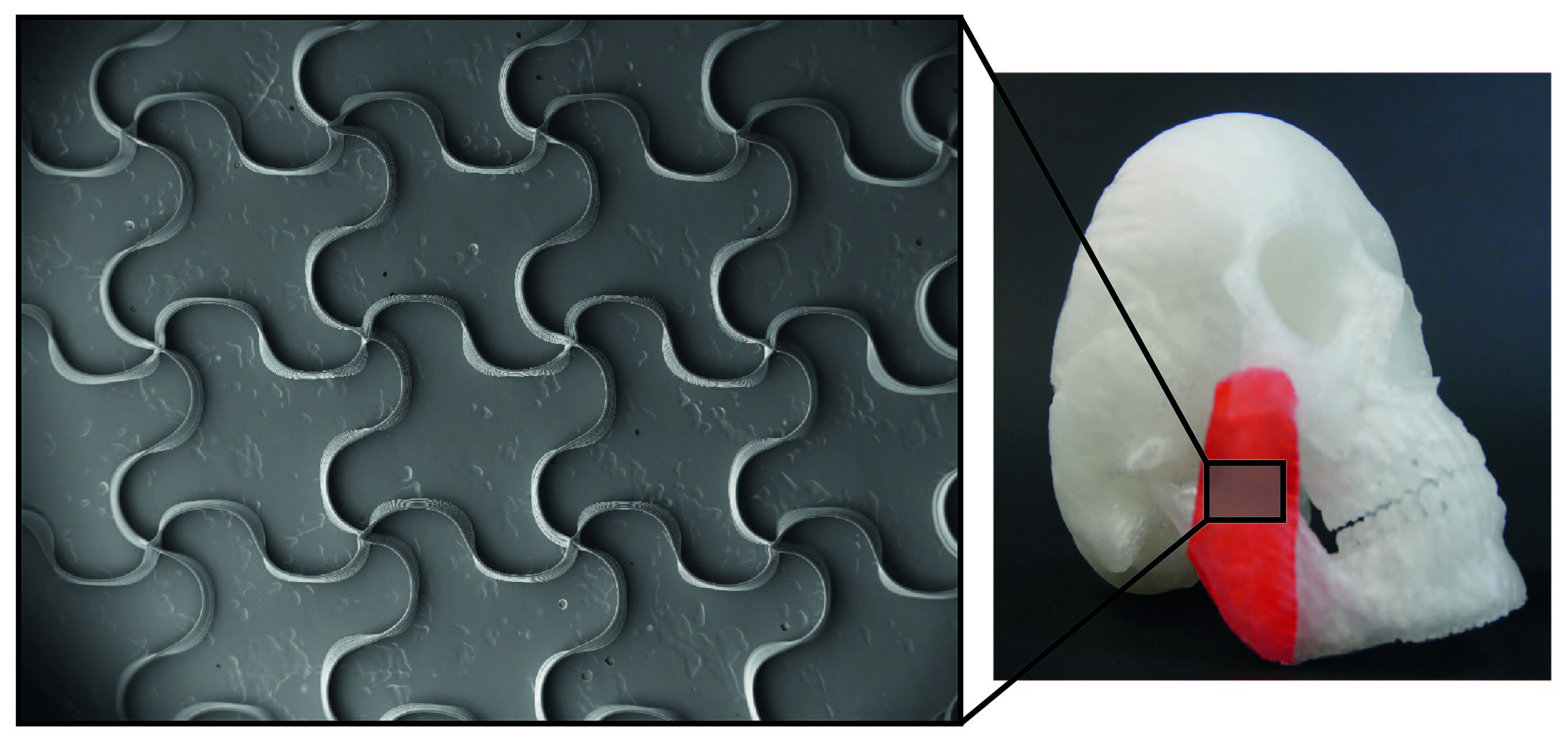It is a frequently observed phenomenon in nature that tissues are supported by fibres to provide mechanical reinforcement; such is the case of mammalian cells, with the fibrillar actin cytoskeleton, tubulin microtubules and intermediate filaments embedded into the highly aqueous gel-like cytosol; or soft tissues of animals which is built by stiff and strong collagen fibres intertwined within a matrix of proteoglycans. Inspired by the natural design of soft biological tissues, researchers from ARC ITTC developed biomimetic soft network composites consisting of a hydrogel matrix and reinforcing 3D-printed micron-sized fibres.
“These composites closely resemble soft biological materials and have the potential of being applied in a broad range of applications including soft-bodied robotics, stretchable electronics and implantable devices, and importantly tissue engineering.” says Onur Bas, one of the scientists in the centre.
For full article: An Integrated Design, Material, and Fabrication Platform for Engineering Biomechanically and Biologically Functional Soft Tissues. ACS Appl. Mater. Interfaces, 2017, 9 (35), pp 29430–29437
Previous work: Biofabricated soft network composites for cartilage tissue engineering. Biofabrication, 2017, 9 (2), 025014




